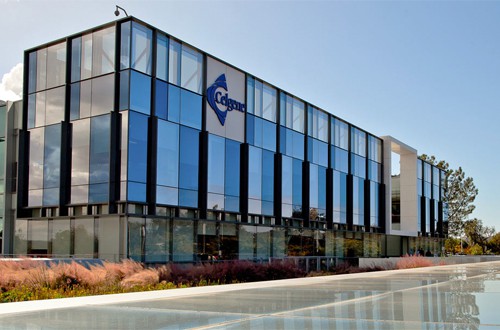
Mere weeks after completing its acquisition of CAR-T specialist Juno, Celgene has added to its cell therapy pipeline with another clinical-stage CAR-T candidate from Bluebird Bio.
Celgene partnered with Bluebird on a portfolio of CAR-T candidates in 2013, and followed that up with a deal to zero in on B-cell maturation antigen (BCMA) two years later, backed by $25m in research funding. Now, it has exercised its option on the lead CAR-T from that programme – called bb2121 and currently in phase I trials – and will share development and promotional rights to the therapy in the US and hold exclusive rights elsewhere.
CAR-T uses modified versions of a patient’s own white blood cells to attack malignant cells. Last year, the first two CAR-T products – from Novartis and Gilead Sciences/Kite – were approved by the FDA.
Under the terms of the new deal Bluebird is in line for up to $70m in development milestones for bb2121’s first indication – refractory/relapsed multiple myeloma – according to a filing with the US Securities and Exchange Commission (SEC), plus royalties on sales. It could also receive additional, undisclosed milestones if the CAR-T is developed for other indications.
“We believe this therapy has the potential to significantly impact the treatment approach and outcomes for patients with multiple myeloma,” said Nadim Ahmed, head of Celgene’s haematology and oncology division.
At the American Society of Haematology (ASH) meeting last December, Bluebird reported results from a dose-escalation trial indicating that bb2121 was able to achieve an objective response rate of 94% and a 56% complete response rate in a heavily pre-treated multiple myeloma population.
At the time, lead investigator James Kochenderfer from the Center for Cancer Research at the National Cancer Institute in Bethesda said: “We have patients who have a sustained response and have been able to go for over a year with no additional myeloma therapy and tolerable adverse effects.”
The firmed-up deal with Bluebird comes after Celgene completed its $9bn acquisition of CAR-T player Juno, which at a stroke gave it a major stake in the emerging cancer immunotherapy category.
That deal gave it rights to Juno’s lead CAR-T candidate JCAR017 (lisocabtagene maraleucel), which is in testing for relapsed and/or refractory diffuse large B-cell lymphoma (DLBCL), as well as a pipeline of other cell and gene therapy candidates.
Notably, Juno’s second most advanced candidate is a BCMA-targeting CAR-T – JCARH125 – which is a rival to bb2121 and is also in development for multiple myeloma. When announcing the deal Celgene said that JCARH125 would “enhance [its] campaign” against BCMA, and in subsequent comments has said that bb2121 remains its “top priority” in the programme.
Bluebird and Celgene are also working together on a second clinical-stage anti-BCMA CAR-T candidate called bb21217.
Celgene has been adding to its pipeline on all fronts of late, with the latest deal also coming after a $2.1bn deal for three Prothena neuroscience drugs, signed last week, and a $1.1bn agreement to acquire Impact Biomedicines and its lead cancer drug fedratinib.




